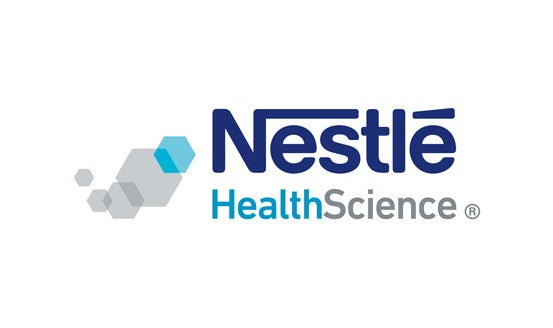
ESPGHAN - Diagnostic delays of cow’s milk protein allergy (CMPA) caused by challenges interpreting non-specific symptoms
• Lack of awareness for CMPA symptoms
• New CMPA awareness tool developed for primary healthcare professionals to make informed earlier assessments
Vevey, Switzerland – Experts speaking at ESPGHAN1 in May 2015 shared research showing that appropriate management of cow’s milk protein allergy (CMPA) – one the most commonly occurring food allergies in infants and young children2,3 – is usually delayed by months before an accurate diagnosis is made by pediatric specialists and a therapeutic elimination diet is prescribed, usually consisting of a hypoallergenic extensively hydrolyzed formula.
Speaking at the Nestlé Nutrition Institute Satellite Symposium “Cows Milk Protein Allergy: How can we improve standards of care in Pediatric Practice”, Professor Vandenplas, of the Brussels Academic Hospital, said: “Only in a minority of cases does the child have an immediate reaction to cows’ milk which makes CMPA easy to identify; but in the majority of cases, due to the genuine challenges facing primary healthcare professionals interpreting the mix of symptoms, there can be a considerable time lag before diagnosis by a specialist and application of a therapeutic diet. This delay can be deleterious to a child’s healthy development, as well as being distressing.”
The difficult to interpret non-specific symptoms referred to included crying, regurgitation, too hard or too soft stools, skin and respiratory issues. There is no reliable biomarker for CMPA, and diagnosis must in most cases be confirmed by an elimination diet and food challenge.
Session chair and fellow speaker Professor Sibylle Koletzko, Hauner Children’s Hospital, Munich, referred to studies reflecting the current confusion not just about interpreting IgE and non-IgE mediated reactions, but also about how to apply current ESPGHAN guidelines, as a recent pilot study in Germany and Hungary indicated a lack of awareness of the guidelines regarding when to switch to an elimination diet and food challenge to confirm diagnosis: “The patient journey to accurate diagnosis is often prolonged as primary healthcare professionals struggle to interpret complex indications also associated with a range of other allergies and food intolerances. There have been few steps forward in the management approach since the EuroPrevall study that showed that the time lag between the occurrence of symptoms and a food challenge can be 2 to 7 months. The EuroPrevall study strongly favored the recognition of IgE mediated CMPA, while cases with unspecific gastrointestinal manifestations negative for specific IgE were not captured due to the study design. With a higher degree of suspicion more children with non-IgE manifestations are found4, 5.”
New Symptom Awareness Tool
Prof. Vandenplas focused upon a new awareness tool designed to help primary healthcare professionals recognize and assess non-specific symptoms earlier. The Cows Milk Related Symptom Scoring Tool (CoMiSS)6 has been developed by a panel of 11 experts, chaired by Prof. Vandenplas. It is designed to enable primary healthcare professionals to more easily assess a mix of non-specific symptoms from different organ systems associated with CMPA – including crying, regurgitation, stool, skin and respiratory conditions. CoMiSS takes between 5 and 15 minutes to complete in conjunction with the child and parent. Prof. Vandenplas said, “Use of CoMiSS by primary healthcare professionals can raise awareness of the likelihood of CMPA at an earlier stage. Early data shows a predictive value of the tool in identifying infants at risk of CMPA of 80%6. It is fast and user-friendly and since its launch in April, is increasingly being used. To encourage further uptake, we will be recruiting study centers in various countries to validate the tool and its role in identifying children with CMPA symptoms earlier than the current norm.”
Prof. Sibylle Koletzko, reiterated that accurate and early diagnosis is a stated goal of the relevant 2012 ESPGHAN guidelines7: ‘Without an appropriate diagnostic work-up, including food challenge procedures, there is a high risk of over and under-diagnosis and thus over and under-treatment. A correct diagnosis allows the appropriate diet to be given to affected infants, thus supporting normal growth and development.”
The workshop with experts to review and discuss the development of CoMiSS was held in September 2014, supported by an unrestricted grant by Nestlé Health Science. The CoMiSS tool and the expert workshop report is currently available from Nestlé Health Science. It will shortly be published in various languages and on national Nestlé Health Science websites.
Key References- European Society of Paediatric, Gastroenterology, Hepatology and Nutrition 48th Annual Meeting 6-9 May 2015; Nestlé Nutrition Institute Satellite Symposium ‘Cows Milk Protein Allergy: How can we improve standards of care in Pediatric Practice’.
- Prescott SL, Pawanker R, Allen KJ, Campbell DE, Sinn JK, Fiocchi A, et al. A global survey of changing patterns of food allergy burden in children. World Allergy Organ J 2013;6(1): 21.
- Nwaru BI, Hickstein L, Panesar SS, Roberts G, Muraro A, Sheikh A. Prevalence of common food allergies in Europe: a systematic review and meta analysis. Allergy 2014;69:992-1007.
- Schoemaker AA, Sprikkelman AB, Grimshaw KE, Roberts G, Grabenhenrich L et al: Incidence and natural history of challenge-proven cow's milk allergy in European children - EuroPrevall birth cohort. Allergy 2015;70 (May 18,online).
- Petrus NC, Schoemaker AF, van Hoek MW, Jansen L, Jansen-van der Weide MC, van Aalderen WM, Sprikkelman AB: Remaining symptoms in half the children treated for milk allergy. Eur J Pediatr 2015;174:759-65.
- Vandenplas Y, Dupont C, Eigenmann P, et al. A workshop report on the development of Cow’s Milk- related Symptom Score awareness tool for young children. Acta Paediatrica 2015; 104: 334- 9.
- Koletzko S, Niggemann B, Arato A, Dias JA,Heuschkel R,et al.Diagnostic Approach and Management of Cow’s Milk Protein Allergy in infants and Children:ESPGHAN GI Committee Practical Guidelines J.Paediatr.Gastroenteral.Nutr 2012;55:221-29.
